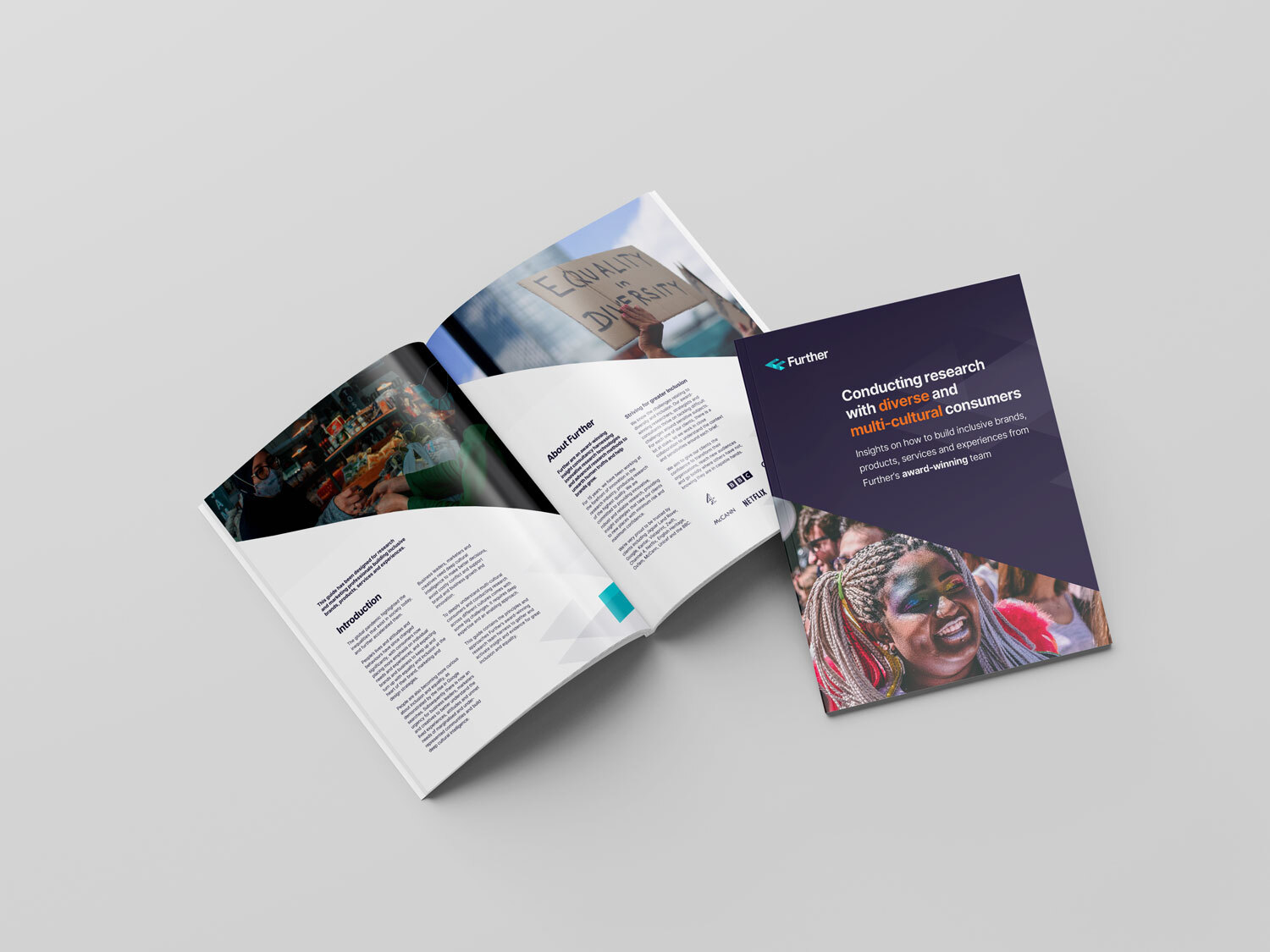In the age of disruption and customer centricity, traditional retail banking is under serious scrutiny. Fintech has forever changed the way forward-thinking consumers want to bank, along with the way they expect their financial brands to behave. The big challenger brands in the finance space - Monzo, Revolut, Starling, Nutmeg, Wealthify, Klarna, Petal, Tandem et al - have the sleek hallmarks and consumer tailoring that's informed by deep human insight. Characterised universally by edgy branding, intuitive 'mobile-first' app design, open banking/transparency policies, jargon-free messaging and financial services built on convenience - fintech brands take everything that frustrates consumers about traditional high street banks, then offer the inverse up as value.
Fintech brands became contenders by listening to their consumers - discovering their pressures and fatigues through consumer research, then using this insight in an agile way. If the big banks are going to keep up, they will have to elevate their insight teams - innovating in line with their competitors to develop services and behaviours their customers will value above the disruptive offerings. Failure to evolve in the face of disruption, means even the biggest, established banks risk being fully phased out over the coming decades as our financial habits become ever more digital. Deloitte’s Crunch Time Finance 2025 report predicts some pretty seismic tech-based changes to come even in the next few years - deeper use of blockchain, touchless transactions, massive online workforces - so the big bank vendors had better be ready.
How did fintech move in?
Fintech banking brands have consumer-centricity baked into their core. They offer great utility (e.g. free international withdrawals, contactless as standard, mobile-first design) and a range of human-centred services that are winning the war on consumer sentiment. In stark contrast, the 2008 banking crisis opened the floodgates on deep consumer discontent and even deeper mistrust of the banking sector. Worldwide market crashes and unsuccessful bailouts unleashed widespread public frustration with shady lending practices, hidden fees, questionable ethics and data breaches they’d come to associate with high street banks. A 2018 ‘Retail Banking Vulnerability Study’ by cg42 found 11% of major bank customers were on the verge of walking, and one in ten customers were tempted to switch to an online-only bank.
The major banks are losing ground to fintech's user experiences that feel less frustrating and more trustworthy. According to YouGov Omnibus research carried out last year, 66% of British people say they do not trust financial institutions to work in the best interests of UK society and 63% of respondents are worried the banks could cause another financial crisis. Ipsos Mori also found that over the past 12 months, 32% of people have used a banking app to make a mobile payment or transfer money, rising to 48% among those aged 15 to 34.
Fresh demand is driven by consumers - the need for human insight has never been greater
By 2020 millennials will represent 50% of the workforce - this is an audience who expects their needs to be put first and that the products they buy to feel tailored to them. Every brand should be thinking about the customer-centric expectations of this audience. Looking at the insight-based innovation of the disruptive competition is a good place for banks to start.
Fintech offers a way out from a stuck system for consumers who feel like they deserve more options. They use insight to create services that not only feel tailor-made for the consumer - they tap into the consumer urge to rebel and spend their money with products they equate with freedom, convenience, respect and trust. They’re incredibly agile and have taken full advantage of emerging technologies (such as cryptocurrencies and blockchain) to deliver meaningful value to consumers.
Insight has played a huge role in the reshaping of money products. Finding out where your audience spends money online, what their savings struggles are, how they feel when they’re using your banking app, what new services you could offer that would inspire a new consumer relationship with your brand - these are all questions traditional banking could be asking through qual research.
With 15% of all new bank accounts in the UK now with Monzo, a customer base of over 1 million, and UK fintech generating £20billion every year in revenue - traditional banks and financial services should be evolving and improving the flow of insight-based change through their clunking operations so they can innovate in line with this competition.
Looking at Monzo - the ‘living coral’ coloured jewel of the fintech market - using insight to build a trust-based relationship with their consumer has been a major part of their operations strategy from day one. From a product that was mobile-first from the start, to CX app journeys that feel bright and intuitive, all the way down to that famous debit card with colour options that were carefully crowdsourced through their online community.
Crowdsourced insight using online communities
This online community forum has been a huge asset to Monzo’s ability to listen to the insight coming straight from their consumer base. Perhaps it’s no small coincidence that Pantone’s colour of 2018 was ‘Living Coral’ ? Monzo is up on the trends du jour, sourcing customer inclinations and emerging tendencies straight from the populace. Their vibrant online community has given them an edge when it comes to insight, as well as acting as the online home of Monzo’s ‘open banking’ brand promise - a positive turn towards transparency in direct rebellion against the practices of more traditional banks.
We’ve harnessed this power of the online community for many of our clients via our Together community platform. The Foundation used Together to assemble an online community on behalf of a client seeking a deeper understanding of consumer attitudes to money and savings. The result was a complete shift in their client’s thinking on their savings products - and the beginning of market offerings based around customer-centric, evidence-based ideas. An allied industry - ‘insuretech’ has also embraced the idea of testing disruptive concepts and propositions online. Our client, VouchForMe, wanted to test whether or not people in the UK would vouch for one another, underwriting their insurance risk and lowering premiums as a result. It turns out that blood is thicker than water, and VouchForMe needed to tailor the proposition to target the trust between family and not friends. Human insight played a critical part in testing their proposition. There are many other examples to draw on for inspiration, where human insight has played a major part in innovation and change.
What banks learn from these disruptive, insight-driven innovators
Fintech brands have the distinct advantage of being tech-enabled, free of costly legacy systems, and at more liberty to be completely creative with their products, customer experience, business strategy and sales propositions. The answer for traditional banks is to repair consumer trust, be empathic, and innovate in line with their fintech competitors. This could be one and the same thing: listening to the insight and latent needs coming through from their customers, then innovating their business practices and services accordingly. Here are some fintech-inspired, insight-based actions traditional banks could be taking (probably up for discussion in boardrooms and on whiteboards as you read).
Open up
Traditional banking could have a lot to gain from building dedicated online communities. Digital forums not only generate the kind of potent insight and market research that helps keep brands in tune, but their very nature builds customer allegiance and a sense of community. Asking your consumer base for their opinion enfranchises them in your operation, and also gives you an invaluable source of insight straight from your customer base. More sincere efforts to operate with transparency from the major banks would also go down well with consumers who feel not enough has been done in the wake of the 2008 crisis. A long term community may work best in this instance.
Learn about your consumers - make things easier for them
Their lives are hard enough as it is. Retail banks should be emulating fintech brands with their meticulous innovation market research and optimisation. Fintech products demonstrate that consumers want innovative functions that help them to save, rather than encouraging the trickle away of their hard-earned money. Whilst the tech-enabled saving pots of Monzo et al might be difficult for the gigantic legacy systems of banks to implement, being open to a better, modern user experience for their customers would help banks keep up with the exciting novelty of fintech products. For starters, allowing their apps to integrate 3rd party data (and vice versa) would improve consumer experiences; from making saving fun by rounding up payments, to being able to quickly and easily manage a bill split between friends. Read this, for more on agile product development.
Don’t be afraid of being human - empathise
Consumers seem to have a better handle on their financial affairs when the conversation is less forbidding and oppressive, and this feeling of safety and trust will keep them coming back. The major banks lack the human qualities of the fintech disruptors - and perhaps would benefit from modernising their communications. Many bank campaigns feel distinctly dated compared with the edge and relevancy of fintech marketing - and a more human approach would certainly help with consumer trust. Truisms and storytelling win out when it comes to consumers and empathy. You can’t achieve either unless you study human contexts and work hard at crafting insight.
Ramp up the desirability
It feels like high-street banks have been relying on locking their new customers in straight out of school with student overdraft accounts and National Railcards for a very long time now. Retail banks have been making mass assumptions that these ingrained loyalty behaviours (consumers signing up with a bank as students and staying there for life) will endure. Banks should be offering updated incentives and advantages beyond the simple promise of security - their institutional safety has been seriously undermined by data breaches and service disruptions anyway. Fintech has the novel advantage of inventive product development, as well as the rebellious allure of tech innovation.
The consensus seems to be that the competition and customer-centricity offered by fintech has only been a good thing for society. Judging from where the market share is heading - a more stable, technologically fluid, transparent banking sector is what the public wants, and hopefully the disruption of fintech will force the major banks to fix up their act to stay in the game. For banks to truly undo the damage of the 2008 crisis and move with the financial services revolution, it’s time to listen to the insight coming through from their audiences and open up to putting their consumer’s needs above the fading influence of the status quo.
Want to be more fintech in your approach to customers? Contact Us





















%20(1).webp)

.webp)

%20(1).webp)

.webp)

.webp)
.webp)
.webp)
.webp)

.webp)
.webp)
.webp)
.webp)